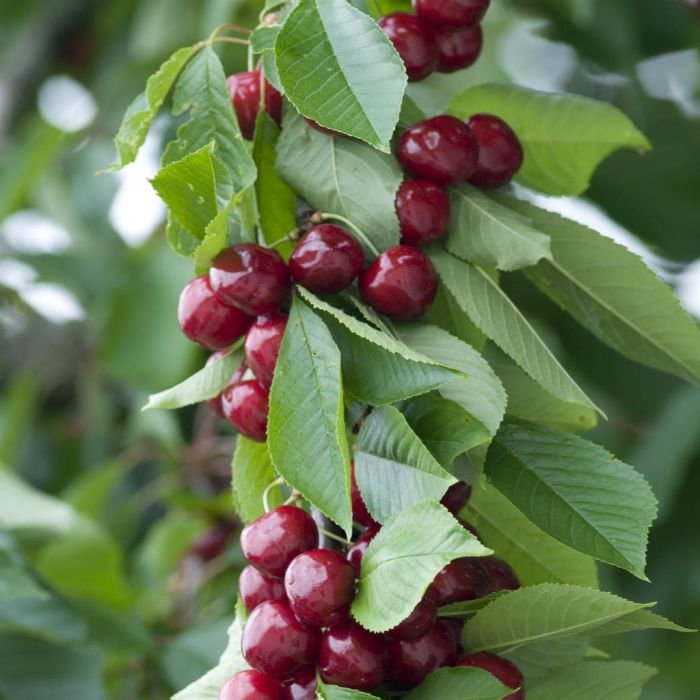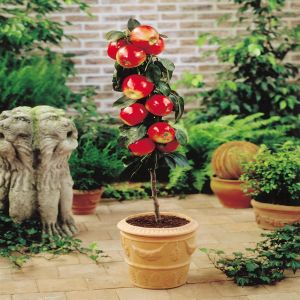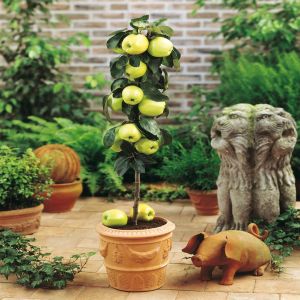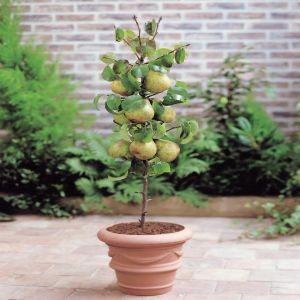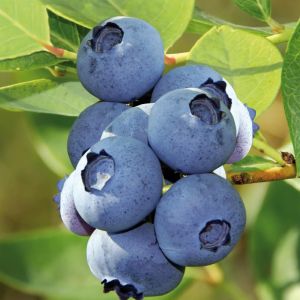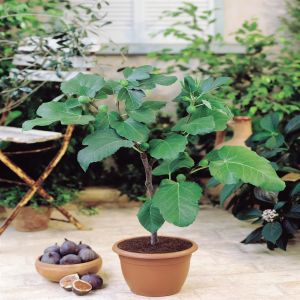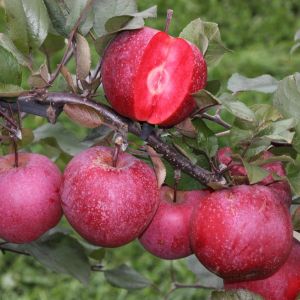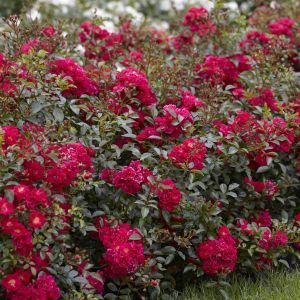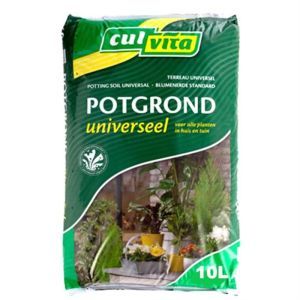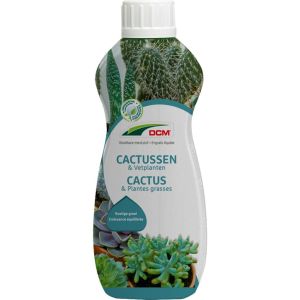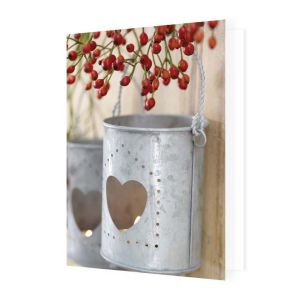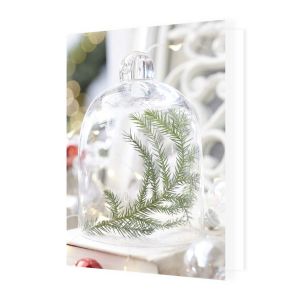Cherry Tree Sylvia Prunus avium
| Botanical name | Prunus avium 'Sylvia' |
|---|---|
| Free Shipping | No |
| Category | Prunus |
| Delivered as | Pot plant |
| Qty | 1x |
| Flowers | Yes |
| Flower period | Spring |
| Fragranr | No |
| Cutflowers | No |
| Flower colour | White |
| Fruits | Yes |
| Edible | Yes |
| Harvest time | June - July |
| Location | Sunny |
| Hardy | Yes |
| Groundcovering | No |
| Naturalizing | No |
| Plant spacing | 100cm |
| Plant Depth | 12cm |
| Preferred Soil | Well drained soil |
| Full grown height | 125cm - 150cm |
| Mature width | 30cm - 40cm |
| Poisonous | No |
| Plant pot size | Ø 9cm |
| Size | 60-80cm |
| USP | Edible fruit |
How to take care of Cherry Tree Sylvia Prunus avium
Select a planting site for your cherry tree that receives full to partial sunlight and has loose, well-draining soil. Dig a planting hole that’s twice the width of the cherry tree’s root-ball and slightly shallower. Loosen the soil in the sides and bottom of the planting hole. Remove the root-ball from the disposal pot. Gently loosen the roots. Set the root-ball into the planting hole and keep the top of the root-ball about 1 inch above the ground level. Backfill the planting hole about halfway, then water the soil generously to eliminate any air pockets around the roots. Backfill the planting hole the rest of the way and water again. New trees need lots of water until they are established. An area of about 1.2 meters around the tree should be kept free of weeds or lawn grass during the early stages of growth. Organic mulches can also be used to suppress weed growth around the tree. Apply fertilizer in the spring until fruit sets and after harvest annually. Check trees for common disease and fruit pests in the spring and fall. Check trees for common disease and fruit pests regularly.
Traditionally deciduous trees have been pruned in Winter but it is now thought that Summer pruning of stone fruits is more beneficial. The warmer and drier weather helps to promote faster healing of pruning cuts and reduces the chances of fungal or bacterial infections entering via these cuts. The main annual pruning can be carried out as soon as the fruit has been harvested. Any inward growing laterals, or crossing shoots can be removed whenever they are noticed.


